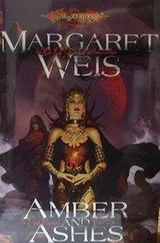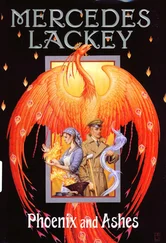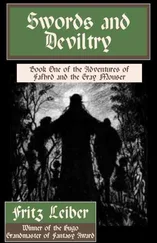J. Clements - Spartacus - Swords and Ashes
Здесь есть возможность читать онлайн «J. Clements - Spartacus - Swords and Ashes» весь текст электронной книги совершенно бесплатно (целиком полную версию без сокращений). В некоторых случаях можно слушать аудио, скачать через торрент в формате fb2 и присутствует краткое содержание. Жанр: Исторические приключения, на английском языке. Описание произведения, (предисловие) а так же отзывы посетителей доступны на портале библиотеки ЛибКат.
- Название:Spartacus: Swords and Ashes
- Автор:
- Жанр:
- Год:неизвестен
- ISBN:нет данных
- Рейтинг книги:5 / 5. Голосов: 1
-
Избранное:Добавить в избранное
- Отзывы:
-
Ваша оценка:
- 100
- 1
- 2
- 3
- 4
- 5
Spartacus: Swords and Ashes: краткое содержание, описание и аннотация
Предлагаем к чтению аннотацию, описание, краткое содержание или предисловие (зависит от того, что написал сам автор книги «Spartacus: Swords and Ashes»). Если вы не нашли необходимую информацию о книге — напишите в комментариях, мы постараемся отыскать её.
Spartacus: Swords and Ashes — читать онлайн бесплатно полную книгу (весь текст) целиком
Ниже представлен текст книги, разбитый по страницам. Система сохранения места последней прочитанной страницы, позволяет с удобством читать онлайн бесплатно книгу «Spartacus: Swords and Ashes», без необходимости каждый раз заново искать на чём Вы остановились. Поставьте закладку, и сможете в любой момент перейти на страницу, на которой закончили чтение.
Интервал:
Закладка:
The other fighters laughed uneasily.
“A gladiator,” Oenomaus said, his voice rising in volume, his annoyance now more apparent, “does not fear a little rain .”
Oenomaus addressed not merely the truculent Varro, but the whole gathering of warriors. The few practice fights that had been already underway had swiftly ground to a halt as the assembled fighters took the hint to stop and listen.
Oenomaus stood, his hands on his hips, at the cliff’s edge that formed one side of the ludus training ground, a vast open expanse of tantalizing freedom-at least to any man who could imitate Icarus and fashion his own wings. To mere mortals, it was a wall by another name, an empty space above a drop to certain death, and the distant vista of the Campanian hills, wreathed with clouds and glimmers of faraway storms.
“The best arenas have sailcloths drawn across the stands,” Oenomaus bellowed, “to protect the noble public from the sun’s excesses. If the weather is bad, the awnings will hold the rain from the faces of the crowd. Therefore the editor of the games, who has invested a year’s coin in their preparation, need not cancel merely for the sake of some water falling from the sky. The sailcloths do not extend over the arena itself!”
“Doctore,” Varro said humbly.
But Oenomaus was not finished.
“A gladiator fights in all weathers. He must be ready for all conditions, at the editor’s whim.” Oenomaus allowed his voice its full potential to boom. “If the editor demands that you fight on stilts, you fight on stilts. If the editor elects to clad you in the costumes of gods or heroes, you will wear those costumes and play your parts. If the editor wishes to hold games in winter on a mountainside, you will fight on ice and in snow. Is that understood?”
“Doctore!” the men chorused.
“The editor seeks new thrills and spectacles. He demands weapons and mismatched opponents. The House of Batiatus does not arrange the games. The House of Batiatus rents your flesh to any editor that will pay the price, and prepares you for victory. The gladiator is prepared for all circumstances, because if he is not, he will die without honor. Is that understood?”
“Doctore!”
“Then fight!” Oenomaus cracked his whip for emphasis, its leather tip snapping through the air scant inches from Varro’s blond curls. The noise of wood clattering on wood recommenced all around them, and Spartacus waited impassively.
Varro snarled and charged toward him. Spartacus waited calmly as the burly Roman advanced.
But then the Thracian charged in another direction, slanting away from the Roman, charging and stabbing at an invisible opponent. His lunge presented his shield arm against the charging Varro; his sword thrust outward at thin air, at the place where an opponent might be.
Varro was unable to veer to the left: such a move would have thrown him straight onto his opponent’s sword-point. Instead, he faltered, slamming obliquely into the Thracian’s shield as Spartacus wheeled and lifted his arm.
Varro was sent flying, landing heavily on his back, wheezing, the breath knocked out of him.
Spartacus lurched forward, the tip of his sword suspended a thumb’s width from Varro’s throat. The fight was over before it had even begun.
Laughing, Varro raised two fingers in supplication, and the two men waited for an imaginary signal from an absent audience. They glanced up at the balcony, where a lone figure stood motionless, her robes fluttering in the breeze.
On a better day, Lucretia, wife of Batiatus, might have played along and given the signal for manumission. But although she stared right at the two men, she saw nothing. Her mind was elsewhere.
Lucretia watched from the balcony through eyes reddened by weeping, her expression unreadable. She did not smile at Varro’s protestations of Thracian cheating, nor did she stay to watch as the Roman clambered to his feet for a rematch. She turned slowly and walked back inside the house, her ears deaf to the continued din of wooden swords on wooden shields. She swept down a long corridor lined with the busts of former gladiators, stone memories of days past.
“Good news after bad!” Quintus Lentulus Batiatus cried, brandishing a scrap of damp papyrus.
Lucretia did not even acknowledge her husband’s excitement, breezing past him into the shrine of the household gods. Too late, she realized there was no other exit. She was cornered.
She turned to meet her husband, straining to smile.
“Word sent that Pelorus does not require us for the Neapolis games,” Batiatus continued.
“After such preparations-” Lucretia began.
“For a gubernatorial celebration, yes. Plans have been revised.”
“We do not bend to change like Macedonian whores.”
“Events beyond the control of good Pelorus.”
“What events-?”
“That of death. Death of our good friend Pelorus himself at the hands of his own slaves,” Batiatus said with a grin.
For a moment, the house was silent, but for the tinkling of a distant fountain, and the muffled footsteps of a slave going about her duties. Lucretia blinked.
“I can see the loss grieves you,” she said eventually.
“My heart breaks,” Batiatus smirked, “at the loss of coin.”
“The Neapolis games were our last booking this month. And our Prince of Mars lies wounded…”
“And yet I proclaimed good news, as well.”
“How can you jest when our best gladiator fights for his life?”
“Crixus?” Batiatus said. “It is Spartacus who is the Champion of-”
“Crixus will soon rise to reclaim what he has lost!” Lucretia shouted, louder than she had expected.
Batiatus shuffled uneasily.
“My heart is touched,” he said, “that you are moved to such concern for our business and our slaves .”
“And where is this good of which you spoke,” Lucretia muttered, fussing with some of the smaller statuettes among the Batiatus household gods. She picked up the figure of her late father-in-law and gazed at it, her fingers tracing the face of the small metal token. She then carefully set it back down among the other imagines , facing away from its companions, as if lost or addled.
“There will be funeral games, Lucretia,” Batiatus said. “And the editorship requires gladiators beyond the limits of the town.”
“For what reason?”
“The House of Pelorus is finished. Those slaves will suffer execution. And then even the killers will be killed.”
“A terrible thing, to be betrayed by ones so trusted,” Lucretia said, sucking in air through her teeth.
She stepped from the shrine back to the green-walled atrium, her husband scurrying to keep up with her. She looked around for some sign of her slave Naevia, hoping to busy herself on some ladies’ business that Batiatus would find tedious.
“A terrible thing for Pelorus, but a thing of opportunity for us!” Batiatus protested, slapping the papyrus for emphasis. “We only need send a few gladiators, and the very nature of the event assures them all of victory.”
“Do you not think this one last insult from Pelorus? To force you to make haste across Campania on some pointless enterprise of maintenance, little better than sweeping up behind horse? Has that man not cost you enough time?”
“We have but time to waste, beloved. All Capua is in mourning for the… tragic death of Ovidius. Preventing indulgence in the celebration of our recent victory until nine long days have passed.”
“And you would pass day in other town, until our own offers warmer clime?”
“My thought exact. Let Spartacus, Barca and a few promising recruits take to the sun, far from the cloud of Ovidius and the pale of his death.”
Читать дальшеИнтервал:
Закладка:
Похожие книги на «Spartacus: Swords and Ashes»
Представляем Вашему вниманию похожие книги на «Spartacus: Swords and Ashes» списком для выбора. Мы отобрали схожую по названию и смыслу литературу в надежде предоставить читателям больше вариантов отыскать новые, интересные, ещё непрочитанные произведения.
Обсуждение, отзывы о книге «Spartacus: Swords and Ashes» и просто собственные мнения читателей. Оставьте ваши комментарии, напишите, что Вы думаете о произведении, его смысле или главных героях. Укажите что конкретно понравилось, а что нет, и почему Вы так считаете.












